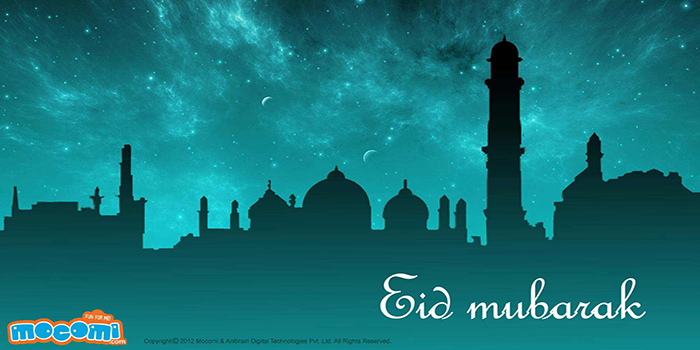Eid-al-Fitr, commonly referred to just as Eid, is an important religious holiday celebrated by Muslims. Also called as Sugar Feast, Bayram (Bajram) and the “Sweet Festival”, it marks the end of the month of Ramadan or Ramzan, the fasting and 9th month of Islamic calendar. There is really no big history, no big war victory, no religious leader’s birthday behind celebrating this day. It is merely the first day of the month of Shawwal, the 10th month of Islamic calendar, which follows the month of Ramadan and hence Eid brings an end to the 29 or 30 day fasting period. It not only signals the breaking of the fast, but also signifies the attainment of communication with the divine spirit and religious virtue, characterized by sacrifice, self discipline and acts of charity The day starts by offering a salat which depending on which juristic opinion is followed, is either considered as Fard (obligatory), Mustahabb (strongly recommended, just short of obligatory) or mandoob (preferable).
Ramadan is a very important month for all Muslims when they fast for entire 30 day period, spend most of their time praying, pay the Zakat and fitra. It is a time of intense spiritual renewal for those who observe it and hence Eid is celebrated to mark a successful completion of the month. Ramadan is also the month when Quran was first bestowed from on high as guidance to mankind. In a chapter of Quran called “Surah Yunus”, it is mentioned,
“O mankind! There has come to you indeed an admonition from your Lord and a healing for what is in the hearts; and a guidance and a mercy for the believers. Say: In the grace of Allah and in His mercy, in that they should rejoice. It is better than (all the worldly wealth) that they amass.” (10:57-58).
And hence as commanded by the lord himself, this day is celebrated to rejoice the month when mankind received enlightenment and when god reached down to provide them guidance. This occasion is called Jashn-e-Nuzool-e-Quraan, or Eid-Ul-Fitr-Day. It is daylong celebration and is sometimes also known as the “Smaller Eid” as compared to the Eid ul-Adha that lasts four days and is called the “Greater Eid”

